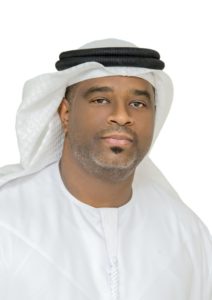District Cooling utility’s CEO discusses acquisition of 80% of Emaar Properties’ Downtown Dubai plants, and elaborates on how pioneering investment in technology and innovation has helped ensure reliability in the face of COVID-19
 DUBAI, UAE, 9 April 2020: Tabreed’s acquisition of an 80% stake in Emaar Properties’ Downtown Dubai district cooling business has served as motivation for the district cooling utility to grow its business and advance the portfolio of its operations, said its CEO, Bader Al Lamki. He highlighted the company’s long-standing experience in operating plants safely and with the highest efficiency. “With this transaction, we are now at 83 plants across six countries,” he said. “When I took charge of Tabreed, the mandate from the board was to capitalise on the knowhow and experience that Tabreed has and find avenues to grow the business. This is now the mega-deal we have been waiting for. It is a transformational leap and a landmark in Tabreed’s history, and this is happening in the biggest district cooling provider in the world, which is UAE. And within Dubai, it’s happening in the Downtown Area, where there are so many iconic developments, like the Burj Khalifa and Dubai Opera. We are very proud to be part of the concession, providing cooling to these developments.”
DUBAI, UAE, 9 April 2020: Tabreed’s acquisition of an 80% stake in Emaar Properties’ Downtown Dubai district cooling business has served as motivation for the district cooling utility to grow its business and advance the portfolio of its operations, said its CEO, Bader Al Lamki. He highlighted the company’s long-standing experience in operating plants safely and with the highest efficiency. “With this transaction, we are now at 83 plants across six countries,” he said. “When I took charge of Tabreed, the mandate from the board was to capitalise on the knowhow and experience that Tabreed has and find avenues to grow the business. This is now the mega-deal we have been waiting for. It is a transformational leap and a landmark in Tabreed’s history, and this is happening in the biggest district cooling provider in the world, which is UAE. And within Dubai, it’s happening in the Downtown Area, where there are so many iconic developments, like the Burj Khalifa and Dubai Opera. We are very proud to be part of the concession, providing cooling to these developments.”
Elaborating on the driving force behind the newly minted partnership, Al Lamki said that the collaboration emerged, because Emaar was looking for a credible partner that can manage its district cooling plants. “Emaar,” he said, “which specialises in building beautiful and renowned real estate, was looking for a partner they can trust to operate the cooling part of their business, hence the conversation emerged.” Al Lamki added that the operations of Emaar alone led to a reduction of 180,000 metric tons of CO2 annually, and that Tabreed, in its entirety and without the Emaar figure, already reduces, 1,233,000 metric tons of CO2 annually. “This is not an easy task,” he said. “But with our experience, technology, innovation and knowhow, we will be able to bring that value to Emaar, and this is one of the reasons they selected us.”
Al Lamki said the scope of the agreement includes four plants, with three already in operation. “The fourth plant is under construction, as we speak, and it is likely to be completed around Q4 of this year,” he said.
Al Lamki added that the company aims to leverage its knowhow from more than 22 years in operation and maintenance of different kinds of plants to ensure that the fourth plant will have state-of-the-art features, drawing from Tabreed’s wealth of knowledge. “We have unmanned plants, air-cooled, water-cooled and gas-driven plants, as well as plants that are also using seawater,” he pointed out. “We are also integrating AI and predictive planning for maintenance to avoid unnecessary shutdown. Given the data we have, we know when to service our plants, and our plants are optimised to ensure operational efficiency and use variable-frequency drives to optimise utilisation of electricity and reduce operating cost.”
Al Lamki said that Tabreed also benefits from a number of collaborations with stakeholders, such as Mubadala and Engie. “With Engie, there has always been strong focus on technology and innovation, and the industry is evolving, too,” he said. “We have the opportunity to integrate those, and this is what we will do for this plant.”
Al Lamki further added that Tabreed’s initial investment on innovative platforms and solutions is vital to ensure no downtime occurs, especially in view of the disruptions that have been caused by new regulations to protect the public from COVID-19. “Data is key,” he said. “And once you receive data and have the algorithms to be able to analyse the data, including the frequency, the differences in the operational matrix and the seasonability, as well of consumption, you can run your operations more efficiently,” he said. “And moreover, this has become handy with current, short-term COVID-19 situation, and operating plants remotely ensures continuity.”
Al Lamki explained that the team that developed this approach had divided the portfolio of plants into clusters, and within clusters there is a master plant with operators, some working on site, and others operating remotely. “This helps in optimising operations and not experiencing any interruption in services or any such inconveniences,” he said. “AI, data and processing and remote controlling of the plants are things that Tabreed has been pioneering on. We have been keeping an eye on the future and having open and constant dialogues with research centres, and when it comes to innovations that make operations safer and more reliable, we will be the first to implement.”
Copyright © 2006-2025 - CPI Industry. All rights reserved.